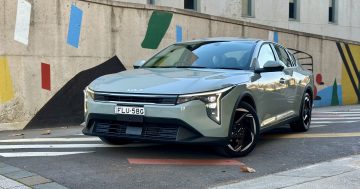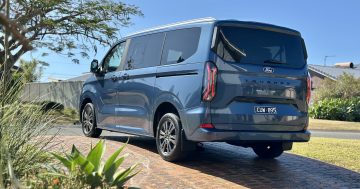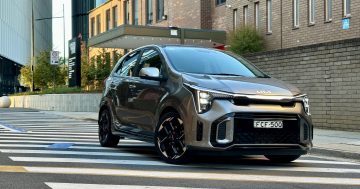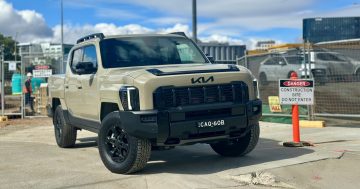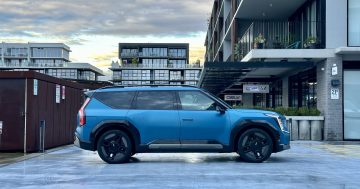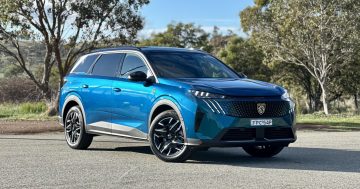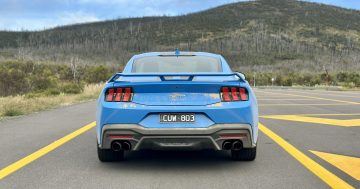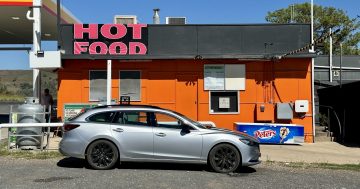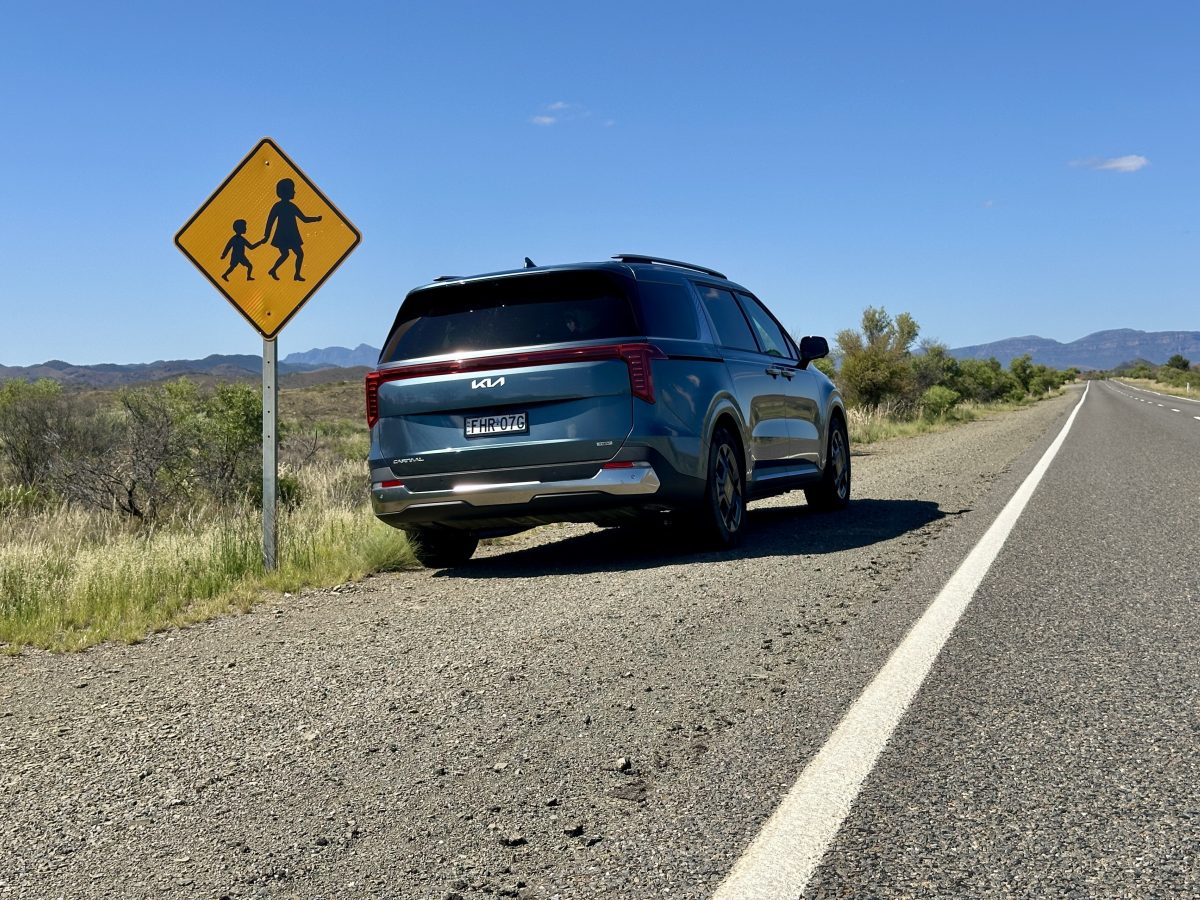
The Kia Carnival GT-Line Hybrid on Flinders Ranges Way, where there are apparently many small children. Photo: James Coleman.
It sounds pitiable, but I spent most of the week between Christmas and New Year’s Day in this car.
According to the maps, Port Augusta is 1300 km – or 14 hours – from Canberra via one of the most boring highways on earth. You could dumbfound a flat-earther on the Hay Plains in NSW, for instance, by how you can’t see Perth between the anthills.
But once there, add in side quests to some of the most beautiful beaches on earth along the Eyre Peninsula, the quaint German town of Hahndorf and the Barossa Valley – because when in that part of South Australia, a dinner at a winery is a must (even if you spend the rest of the year recovering from it, and I don’t mean the calories). Oh, and Adelaide itself.
We ended up racking up a total of 4000 km on the Kia’s clock. Enough time, as it turns out, for my wife to wonder if it might be time to trade in the trusty Mazda 6 wagon.
She’s not alone.
Four in every five people-movers under $70K sold in Australia is a Kia Carnival. It might have been a bit of a sloppy tin can in 1999 when it first arrived here, but even then, it outsold the Toyota Tarago in no time. And where’s the Tarago now? That’s right – it’s not even sold here.
After some minor tweaking for 2024, the Carnival is now a very polished piece of kit.









Minivans have a bit of a reputation, in the same way New Balance sneakers do. But without going overboard on the glitz or just full-on embracing the van shape the way a Multivan does, the Carnival has almost made them cool. You can emerge from the driver’s seat of a Carnival with your aviators, the virility of youth intact. Or something.
The price has also grown, mind you.
The 3.5-litre V6 petrol and 2.2-litre turbo diesel offerings are still here, starting at $50,000 and $52,000, respectively. But for the first time, there is also a 1.6-litre turbocharged petrol-electric hybrid option – but only in top GT-Line spec, when you’re paying $76K.
I haven’t done the maths or looked at the various thresholds, but there’s the possibility you might be able to pay for this through the family tax benefit you’d gain by having six kids [please see an expert for advice in family planning or finances – ed].
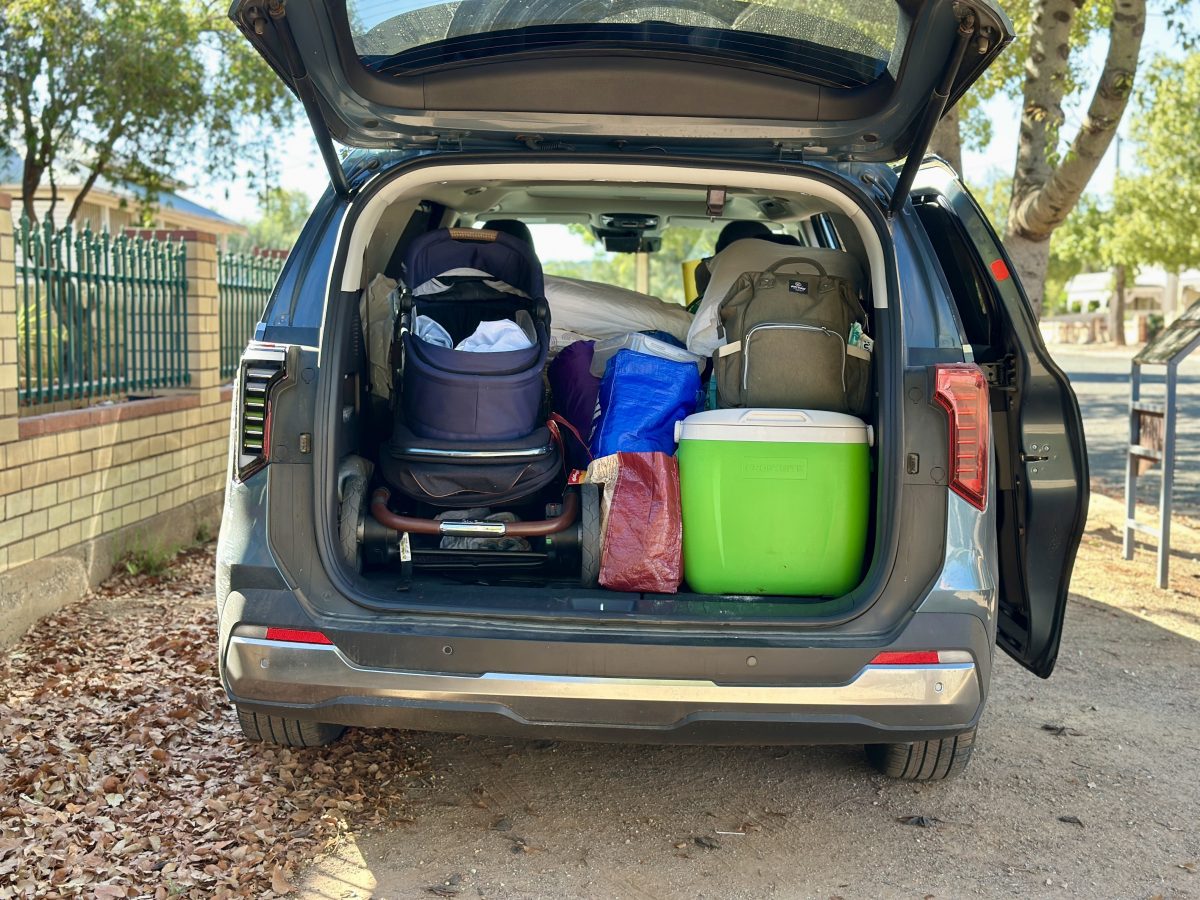
Still piles of space. Photo: James Coleman.
The fuel consumption is also incredible (and, as a father with a people mover, you’re at liberty to talk about things like fuel consumption). You can make the 800 km from Canberra to Mildura on the Victorian border – on a windy day – on a single tank of 91.
It’s very nicely appointed inside, too, with automatic sliding doors, pretty ambient lighting, phone charging ports and air-conditioning vents everywhere, and even a heated option for the outermost of the second-row seats.
Up front, parents enjoy plush tan-coloured leather door trim, whereas the kids in the back get the more resilient plastic. Sound thinking here too.
Our two kids rattled around in there. And the boot is equally impressive. For instance, we figured South Australia would be hot, so we brought along a fan for our bedroom, and I mean a proper metal near-industrial pedestal fan, stored upright.
However, this also means you miss out on a spare tyre of any sort, which had our hearts in our mouths when a rusty piece of wire pierced the mudflap on a quiet stretch of B-road near Quorn. A few more centimetres and we probably would have been on a tow-truck.
On the highway, the Carnival is composed and quiet. The hybrid system beavers away imperceptibly, and the adaptive cruise control works a charm. Although I can’t vouch for what happens when you fill all eight seats with beefy construction workers, overtaking is effortless.







It’s still a van, however. So when tackling the twisty corners of the Barossa Valley, you can feel physics coaching the front of the car to continue on, off the road and into a vineyard.
There’s also a bit of a dead patch when you first put your foot down, as if the car’s computer is scrambling to determine which part of the drivetrain to engage.
I know I’ve said this about every Kia (and Hyundai) product for what feels like years, but the incessant beeping whenever the speed limit changes, you exceed it by 2 km/h, or you touch a white line absolutely does your head in. There’s an update coming soon that will make it easier to shut all this up, but whoever thought it was a good idea in the first place?
But in the end, the only real damper to the whole trip was in Adelaide.
All the stories are true – it’s a lovely city. Country town feel in the suburbs, shades of the vibrancy of Sydney in the middle, and more of those beautiful white-sanded beaches trimming the side like crackling on a pork roast.
It was the psycho in a blue Toyota Corolla hatchback that ruined it.
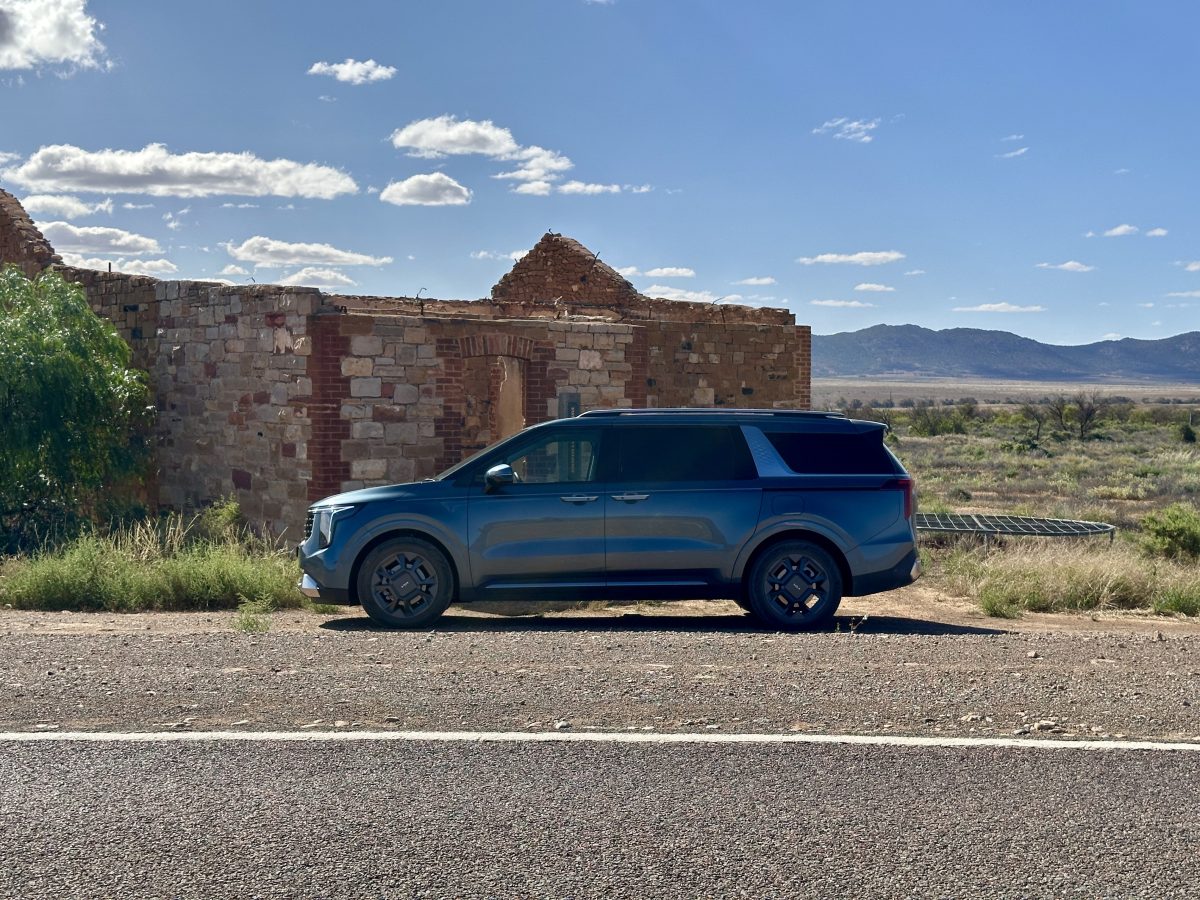
Extra window tinting comes as standard on the GT-Line. Photo: James Coleman.
When the slightly lost driver of a blue Kia Carnival ended up in the wrong lane in a roundabout, the Corolla was so incensed that he proceeded to tail us through the suburb before cutting us off at an intersection.
He emerged, spitting obscenities and brandishing a pair of keys, so we reversed fast and hard to get away, and I could have sworn the tree jumped out at us from the side of the road. There was that sickening crunch of plastic taillight meeting an immovable object. My heart fell.
The Corolla fled at this point, maybe because my wife was on the phone to 000, or because he figured he’d won.
All I can say is that everyone should buy a blue Kia Carnival and drive through Adelaide. Seeing one of these on every street corner should rattle him. And you win, too.
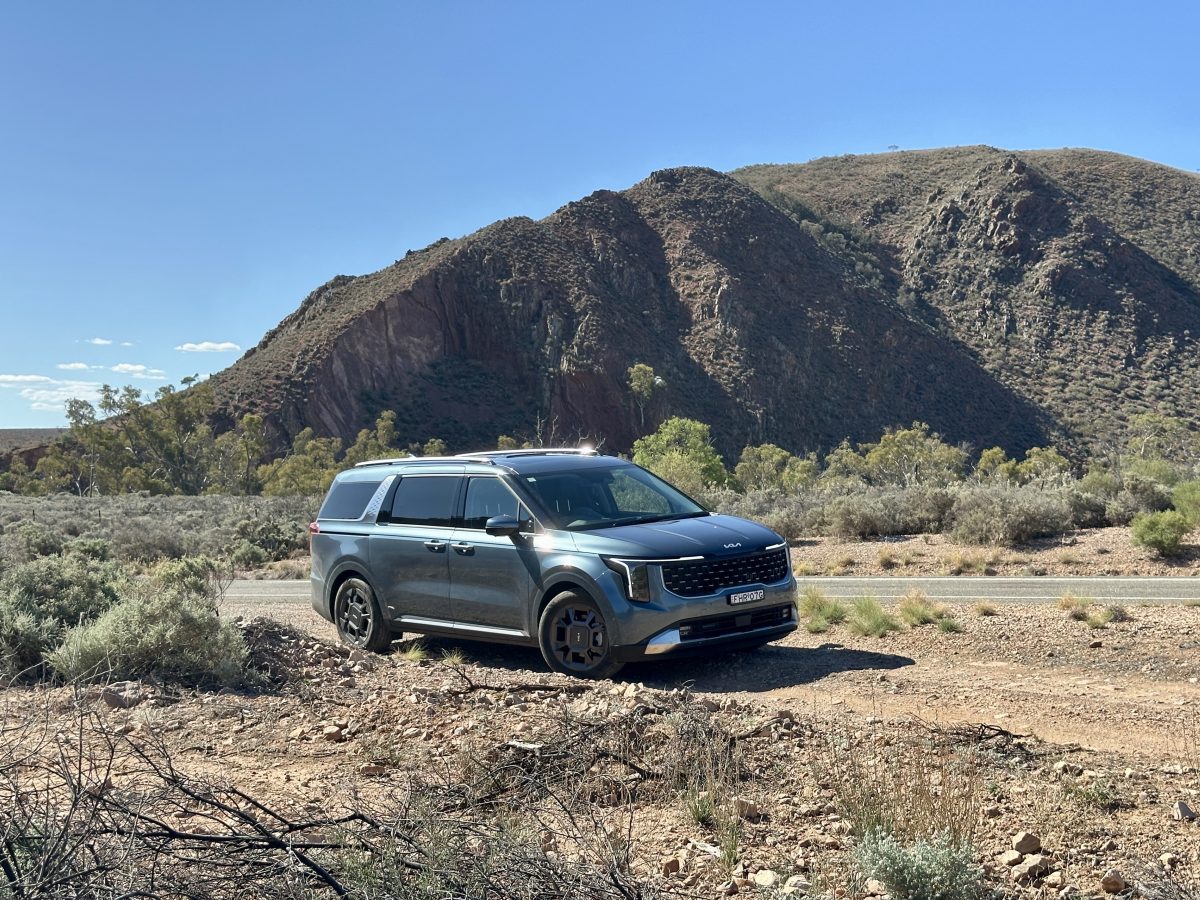
Lots of brown rocky stuff here. Photo: James Coleman.
2025 Kia Carnival GT-Line Hybrid
- $76,210 (plus on-road costs)
- 1.6-litre turbocharged petrol-electric hybrid, 183 kW / 367 Nm
- 6-speed automatic, front-wheel drive (FWD)
- 5.8 litres per 100 km claimed fuel consumption
- 2253 kg,
Thanks to Kia Australia for providing this car for testing. Region has no commercial arrangement with Kia Australia.
Original Article published by James Coleman on Riotact.


